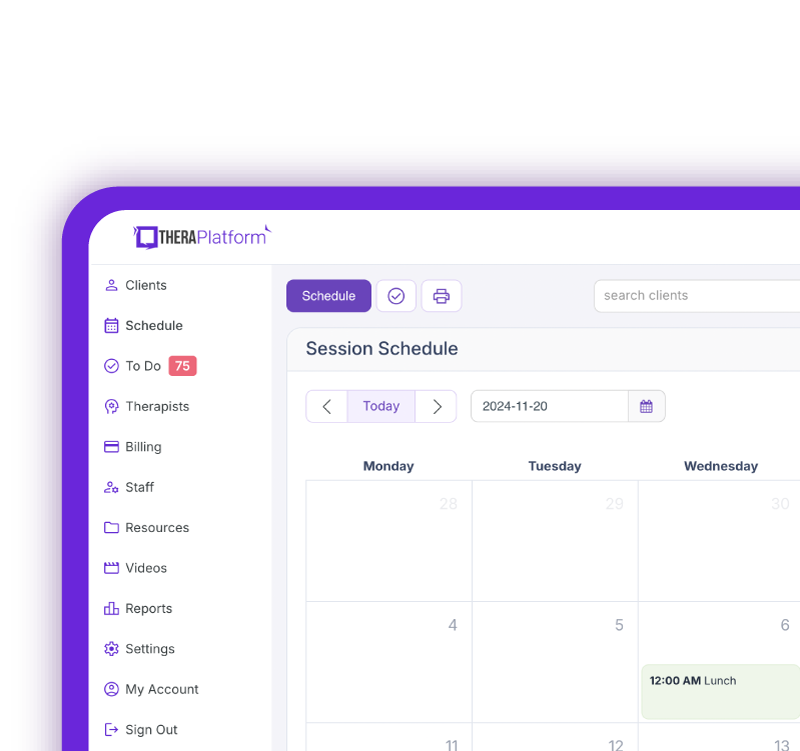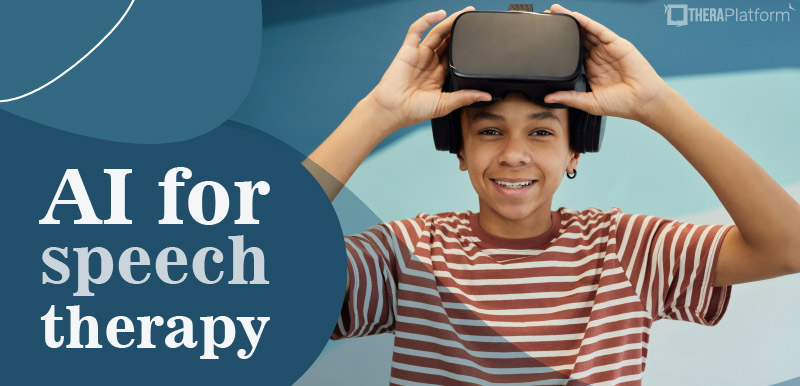Social emotional activities for speech therapy

Social-emotional learning (SEL) activities play a critical role in communication development. Communication involves more than just language skills; clients must understand and use social skills appropriately and manage emotions.
Summary
- Social-emotional learning (SEL) is essential for communication development, helping clients understand and use social skills effectively while managing emotions in various social scenarios. Download our free emotional literacy worksheets.
- Speech therapists play a vital role in fostering social-emotional learning activities by incorporating activities that enhance self-awareness, self-management, social awareness, relationship skills, and responsible decision-making in therapy sessions.
- Effective social-emotional learning activities for speech therapy include emotion identification games, role-playing, turn-taking exercises, problem-solving discussions, and digital tools like apps and video modeling.
- Incorporating social-emotional learning activities in speech therapy leads to improved emotional regulation, increased confidence in social interactions, and overall holistic development, helping clients communicate more effectively in different social settings.
- By leveraging an EHR like TheraPlatform for efficient documentation and homework, therapists can approach sessions with ease.
Streamline your practice with One EHR
- Scheduling
- Flexible notes
- Template library
- Billing & payments
- Insurance claims
- Client portal
- Telehealth
- E-fax

Benefits of using social-emotional learning activities in speech therapy
Speech therapists play a key role in fostering social-emotional skills alongside speech and language. They can identify social-emotional skills that a client has difficulty with. By incorporating social-emotional learning activities into sessions, speech therapists can help clients improve their ability to participate in social interactions, express themselves, and understand others.
Social emotional learning is comprised of five core competencies, according to the Collaborative for Academic, Social, and Emotional Learning (CASEL):
- Self-awareness: Recognizing one's own emotions, strengths, and weaknesses.
- Self-management: The ability to regulate emotions, control impulses, and manage stress.
- Social awareness: The ability to understand the perspectives of others and show empathy.
- Relationship skills: Developing and maintaining healthy relationships.
- Responsible decision-making: Making ethical, responsible choices.
Here are some practical social-emotional learning activities that speech therapists can use in therapy sessions with clients who struggle with social-emotional skills.
Social-emotional learning activities for speech therapy
Building self-awareness
- Emotion identification games: Use picture cards or apps that display various facial expressions and scenarios. Ask your client to identify an emotion named. You can also work on the client's ability to name the pictured emotions.
- Mirror exercises: Encourage the client to practice making facial expressions in a mirror to match specific emotions, which can encourage the client to build nonverbal communication skills.
- Feelings journal: Encourage clients to write or draw about their daily emotions to foster emotional expression, and can strengthen the client's ability to connect their internal feelings with verbal expression.
Enhancing self-management
- Breathing and speech control techniques: Teach the client to take deep, regulated breaths during exercises. These techniques can help the client manage anxiety, and deep breathing exercises can also foster fluent speech for individuals who stutter.
- Impulse-control games: Activities like "Red Light, Green Light" or "Simon Says" help clients practice waiting and thinking before taking action or speaking.
Improving social awareness
- Role-playing scenarios: Practice commonly occurring social situations like introducing oneself, asking questions, or apologizing. This allows clients to practice social skills and navigate potential challenges within a safe space.
- Perspective-taking activities: Discuss characters in stories or videos to understand different points of view. Ask clients how they think the characters might be feeling or what they may be thinking. Talk about the characters' potential motivations to foster empathy and Theory of Mind (the ability to understand another individual's point of view).
- Social stories: Create personalized narratives that teach appropriate responses in specific social contexts. Social stories can help clients prepare for certain social situations by developing an understanding of social expectations and effective communication strategies. Examples include starting a conversation or playing outside with others.
Building relationship skills
- Turn-taking games: Interactive activities like board games or shared storytelling can motivate clients to practice taking turns in conversation. These activities help clients learn when to speak or listen when interacting with others.
- Compliment chains: Encourage clients to practice giving and receiving compliments, which can promote positive social interactions and build their self-esteem.
- Group therapy activities: Engage your client in collaborative tasks requiring them to work together. These activities promote teamwork skills and effective communication.
Encouraging responsible decision-making
- Problem-solving discussions: Present hypothetical events or real-life scenarios for clients to practice making thoughtful decisions. Guide your client to identify the problem, consider solutions, and evaluate possible outcomes.
- Cause and effect charts: Create a chart to explore how actions and words impact others. This helps clients understand the potential consequences of their communication choices.
- Conflict resolution practice: Teach phrases and strategies for resolving misunderstandings. Role-playing and discussing real-life scenarios are effective ways for clients to practice handling frustration or disagreements.
Incorporating technology and tools
- Digital apps and games: Speech therapists can utilize digital tools such as Emotion Cards or social-emotional learning activities therapy apps as motivating, interactive ways to help clients develop social-emotional skills.
- Video modeling: Clients can watch and analyze social interactions in videos to observe appropriate social behavior. This helps clients understand how specific behaviors are used to interact with others within certain scenarios.
- Interactive whiteboards: Visual aids can engage clients in social-emotional learning activities, including interactive games, timers to guide mindfulness sessions, and matching options for decision-making within social stories. TheraPlatform offers an interactive whiteboard as a teletherapy option.
Practice Management + EHR + Telehealth
Manage more in less time in your practice with TheraPlatform

Benefits of integrating SEL in speech therapy
Integrating Social Emotional Learning activities in speech therapy offers several benefits to clients, including:
- Improved emotional regulation: By learning to manage their emotions appropriately, clients can learn to communicate more effectively.
- Enhanced confidence in social interactions: Engaging in social-emotional learning activities in therapy helps clients develop appropriate skills through practice. This preparation can lead to more confidence when participating in social settings.
- Holistic development: Social-emotional learning activities can develop cognitive and emotional skills, supporting well-rounded social development.
Strategies for implementation
SLPs can implement social-emotional learning activities into therapy sessions by considering a few key strategies.
- Tailor activities to the client's age and developmental stage. Therapists should adjust activities based on the client's age and developmental stage to ensure they are effective and relevant to the client's daily life.
- Balance social-emotional learning activities with traditional speech therapy goals. Therapists should integrate SEL activities into traditional speech therapy goals rather than targeting these areas separately.
- Collaborate with parents, teachers, and counselors: Collaborating with other individuals who spend time with the client can facilitate consistent reinforcement of SEL skills across various settings.
Social-emotional learning activities help clients understand and use social skills and manage emotions appropriately. SEL plays a key role in communication development, allowing individuals to have conversations effectively, interact with others, and navigate different types of social scenarios.
Speech therapists can take a holistic approach to developing their clients' communication skills by incorporating social-emotional learning activities into sessions. Explore resources and innovative tools to enhance SEL integration in your practice, helping your clients thrive in social situations.
Streamline your practice with One EHR
- Scheduling
- Flexible notes
- Template library
- Billing & payments
- Insurance claims
- Client portal
- Telehealth
- E-fax

Resources
TheraPlatform is an all-in-one EHR, practice management, and teletherapy software built for therapists to help them save time on admin tasks. It offers a 30-day risk-free trial with no credit card required and supports different industries and sizes of practices, including speech-language pathologists in group and solo practices.
More resources
- Therapy resources and worksheets
- Therapy private practice courses
- Ultimate teletherapy ebook
- The Ultimate Insurance Billing Guide for Therapists
- The Ultimate Guide to Starting a Private Therapy Practice
- Mental health credentialing
- Insurance billing 101
- Practice management tools
- Behavioral Health tools
Free video classes
- Free on-demand insurance billing for therapist course
- Free mini video lessons to enhance your private practice
- 9 Admin tasks to automate in your private practice
References
Kate Zhou, P. (2023) Influence of Social Emotional Learning Curriculum on Preschoolers' Mental Health in School-Setting: A Mixed-Methods Study. Psychology, 14, 1793-1809. DOI: 10.4236/psych.2023.1412105.
LaBelle, B. (2023). Positive outcomes of a social-emotional learning program to promote student resiliency and address mental health. Contemporary School Psychology, 27(1), 1-7. DOI: https://link.springer.com/article/10.1007/s40688-019-00263-y
Turan, M. E. (2021). The Relationship between Social Emotional Learning Competencies and Life Satisfaction in Adolescents: Mediating Role of Academic Resilience. International Online Journal of Educational Sciences, 13(4). DOI: https://doi.org/10.15345/iojes.2021.04.012



